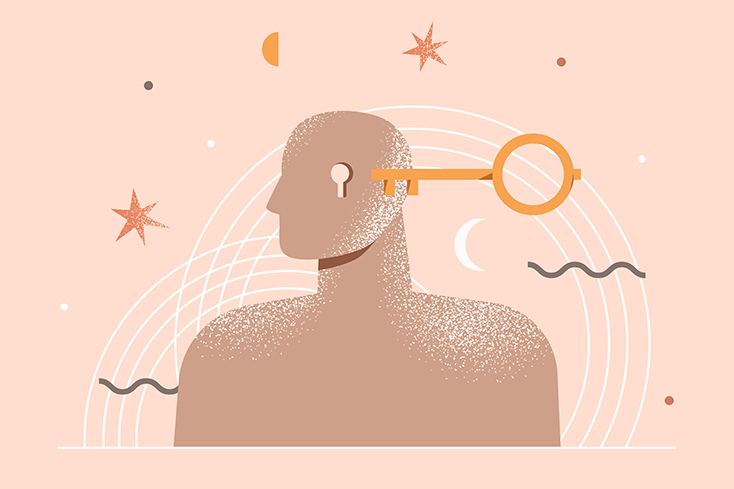
This year marks a decade since I first sought treatment for my mental health. During my sophomore year of college, following nearly five years of chronic and debilitating migraines, I was referred to a school therapist. Shortly after visiting the school psychiatrist and therapist, I was diagnosed with generalized anxiety disorder (GAD) and obsessive-compulsive disorder (OCD). Later, in graduate school, I was diagnosed with post-traumatic disorder (PTSD) following a sexual assault.
Ten years after that initial therapy session, I have made strides in my recovery — and I continue to pursue therapy. Over the last decade, I have learned a lot about myself and about mental health. The following are my main takeaways from treatment that I hope to share with others who may be struggling.
1. Rest And Relaxation Are Possible
For much of my life, I spent every moment working or thinking about working. My career consumed my life. However, my time in therapy has given me perspective and specific relaxation techniques to calm my anxieties. Some of these techniques include imagining I am brushing my stressors off, emotional freedom technique (EFT) tapping and freewriting about anxiety in my journal. As a result, my anxiety, which I have named Mr. Peanut and talk to, visits far less frequently.
On my most recent vacation to celebrate completing the seventh semester of my doctoral program, for instance, my anxiety stayed at home, and I truly enjoyed my vacation. This was largely due to my new coping skills and progress in therapy; I proactively wrote out a task list of my pending projects before the vacation and set up out-of-office notifications so I could remain anxiety-free throughout the trip. Previously, I would have spent the trip stressing about my self-imposed, never-ending to-do lists and checking my work email. Instead, I enjoyed food, TV shows and shopping — without the normal intrusion of worry and anxiety.
2. Mental Health Recovery Is A Lifelong Journey
Ten years into therapy to address my anxiety, I only experience migraines once monthly, at the most. Yet, there are still hours or days when my panic attacks, disassociation or OCD get the best of me. During these times, I find myself ruminating about my tasks lists and client projects, catastrophizing or feeling like I am completely out of my body. However, over the years, I have come to understand that progress is not always linear, and my recovery is a lifelong journey.
With this perspective, I finally feel equipped to deal with any mental health challenges that come my way. Now, I possess the confidence and faith that any mental health struggles I face are temporary and will pass — just as they always have.
3. Storytelling Is Critical To My Recovery
I used to be afraid to talk openly about mental health and to share my story, largely due to the stigma surrounding mental illness (and the resulting discrimination). However, with practice, and with the encouragement of those around me, I am now able to proudly share my mental health journey with friends and family, coaching clients, with large audiences and even with global publications.
While I am proud to be reducing the stigma associated with mental health, I also found that sharing my story is critical to my recovery. Sharing my story of recovery soothes Mr. Peanut and reminds me that I am not alone.
In fact, I was so impacted by the power of sharing my mental health story that I decided to write my doctoral dissertation on the influence of mental health self-stigma and mental health storytelling on college students.
If you are struggling with your mental health, please know that help is available, recovery is possible and sharing your story can make a positive difference in the lives of those living with mental health conditions.
Kyle Elliott, MPA, CHES, is the founder and career coach behind CaffeinatedKyle.com. His goal is simple: To help people find jobs they love. As a queer person, male sexual assault survivor and someone living with mental health conditions, Kyle is proud to get to use his voice and platform to help others share their stories, get help and achieve
